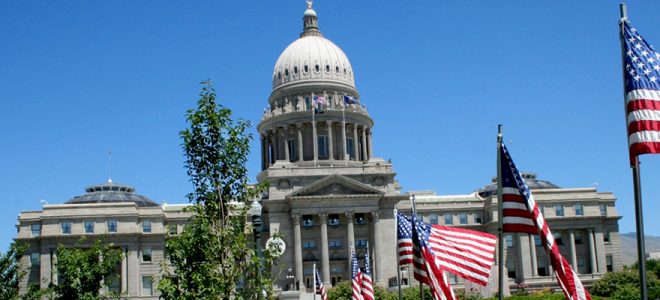

Civility and civil discourse are in vogue again. Many say we have Donald Trump and the resurgence of white nationalism to thank for civility’s sudden relevance, but there are also those who say the state of our union has been fundamentally uncivil for too long and that the incendiary Trump campaign was only the logical result. It depends, of course, on what we mean by civility. Does civility mean suppressing real conflicts for the facade of cooperation, arguing nicely, or does its definition and importance go deeper still?
We at the Civility Research Network (CRN) at Boise State have taken seriously the question of what matters most about civil discourse, how it is defined and practiced, and what its primary obstacles and limitations might be. We have surveyed the campus and surrounding community, asking which causes of incivility people find most concerning. We have also hosted a series of discussions with different groups on and off campus on topics such as “Why does civil discourse matter?”, “What’s the point of civil discourse?” and “What are the conditions of civil discourse?”
The provisional answers to these questions that we have collected so far are useful for addressing controversial issues, such as the debate between free speech and safe spaces on college campuses. By first defining the purpose and scope of civil discourse we find that neither ‘free speech’ nor ‘safe spaces’ are ends in themselves, nor are these principles good in isolation. What this means is that free speech and safe spaces are both only good insofar as they are balanced for the sake of civil discourse, not the other way around.
CIVILITY: ITS PURPOSE, SCOPE, AND CONDITIONS
At the Boise State University’s 2018 Civility Symposium a speaker said that when people hear the word ‘civility’ they often immediately associate it with wealthy liberals trying to reign-in and silence dissent against the status quo. However, we believe civil discourse runs much deeper, sometimes even contrary to this understanding. Rather than merely arguing cordially or ignoring real conflicts, civility is necessary for approximating truth, problem solving, resolving conflicts, and therefore maintaining peace in a functioning democratic republic.
One of the reasons we need one another is because along with our unique perspectives come myriad limitations, such as confirmation bias and polarized thinking. Civility in discourse opens the way for understanding new perspectives, correcting for biases, and finding new solutions.
WHAT CONSTITUTES CIVIL DISCOURSE?
We’ve talked about what civil discourse does, but what constitutes civil discourse? Our provisional answer, developed through the discussions mentioned above, is as follows:
Civil discourse requires an ongoing effort to practice respect, good faith, and benefit of the doubt. Civility is not the absence of conflict, but instead how conflicts are navigated. Within reason, license must be given for differences, disagreement, and critique, while committing the time and energy for active-listening, learning, and discovering shared values and concerns.
If solutions can be reached through genuine dialogue, the number one obstruction to this process are those repeat offenders who have no serious commitment to the elements laid out above. What happens when one person’s involvement manifests as a threatening, fear-mongering, or otherwise aggressive assault that undermines the conditions for others to safely engage in the discourse? What about when a person wants their opinions heard but is unwilling to listen to others? In other words, what about when reactionary dogmatism crosses the line into hate speech?
THE DEBATE: FREE SPEECH VS. SAFE SPACES
Last fall, Boise State’s Young Democrats and College Republican clubs had a debate about freedom of speech. Below we paraphrase the key ideas put forward in that debate.
Free speech: Free speech is necessary for the operation of a healthy democratic republic. Without free speech we are unable to express ourselves, genuinely disagree, and then potentially find ways of understanding one another. Instead, limitations on free speech put us on a slippery slope to despotism. Therefore, according to the Republican debate representative, we must defend the ability for others to say even the most reprehensible things imaginable.
Safe spaces: Free speech ends where hate speech begins. Hate speech undermines the conditions for even having a diverse and inclusive discourse. We must be cognizant that the very frames of certain debates compromise the involvement of systematically disadvantaged and historically marginalized groups. Therefore, giving platform to those who fear-monger against groups that are continuously the victim of hate crimes structurally undermines the conditions for a civil discourse that would be inclusive of these groups.
At first, these two positions seem irreconcilable. On the free speech side, defenders claim that ‘hate speech’ becomes a subjective matter of marginalized people merely taking offense. If anything that offends others is considered hate speech, then there can be no freedom of speech. On the safe space side, speech that calls into question the very validity of certain citizens, especially historically/systemically abused and marginalized people, undermines the kind of good faith and initial respect necessary for even having a civil discourse.
A common concern: As irreconcilable as these two stances seem at first, they actually share an important concern: Freedom from the threat of violence. On the safe space side of the debate the concern is against systemic violence as it affects marginalized groups. On the free speech side the concern for safety is in regards to totalitarianism, since infringements upon free speech are a ‘slippery slope’ into tyranny.
A COMMON VALUE: CIVIL DISCOURSE AS A NECESSARY CONSTITUENT OF A DEMOCRATIC REPUBLIC
Going back to the purpose of civil discourse, we see that the ultimate reason we want to ensure that people have the freedom to speak in the first place is the same reason for why we want to ensure that those who are most systemically disadvantaged are safe to participate in the discourse: diversity of perspectives increases social buy-in and opens the way for new solutions. In other words, both sides, at their most honest and sensible moments, are fighting for a healthier democratic republic.
Both the principles of safety for marginalized voices and the safety for free speech in general are only good insofar as they are balanced with one another for the sake of civil discourse itself. This is a call for all of us to not value any one principle or virtue in isolation while neglecting others that are also fundamentally important to civic engagement.
In other words, grey areas, such as the grey area between what counts as hate speech and free speech, should not be evaded. Civil discourse is not running away from conflicts by latching onto absolutized principles in isolation from other perspectives or values. Instead, civil discourse requires trying to harmonize competing principles that are necessary conditions for even having civil discourse. Therefore, rather than coming to a dogmatic position that is to be applied in all domains, grey areas are a challenge for us to explore discursively, case by case, while balancing principles and goals through the practice of civil discourse. Free expression of voices and diversity of participating voices must, therefore, be balanced with one another, since either taken in isolation from the other will undermine the very conditions for civil discourse. Because really, without civil discourse, what’s the point of either?